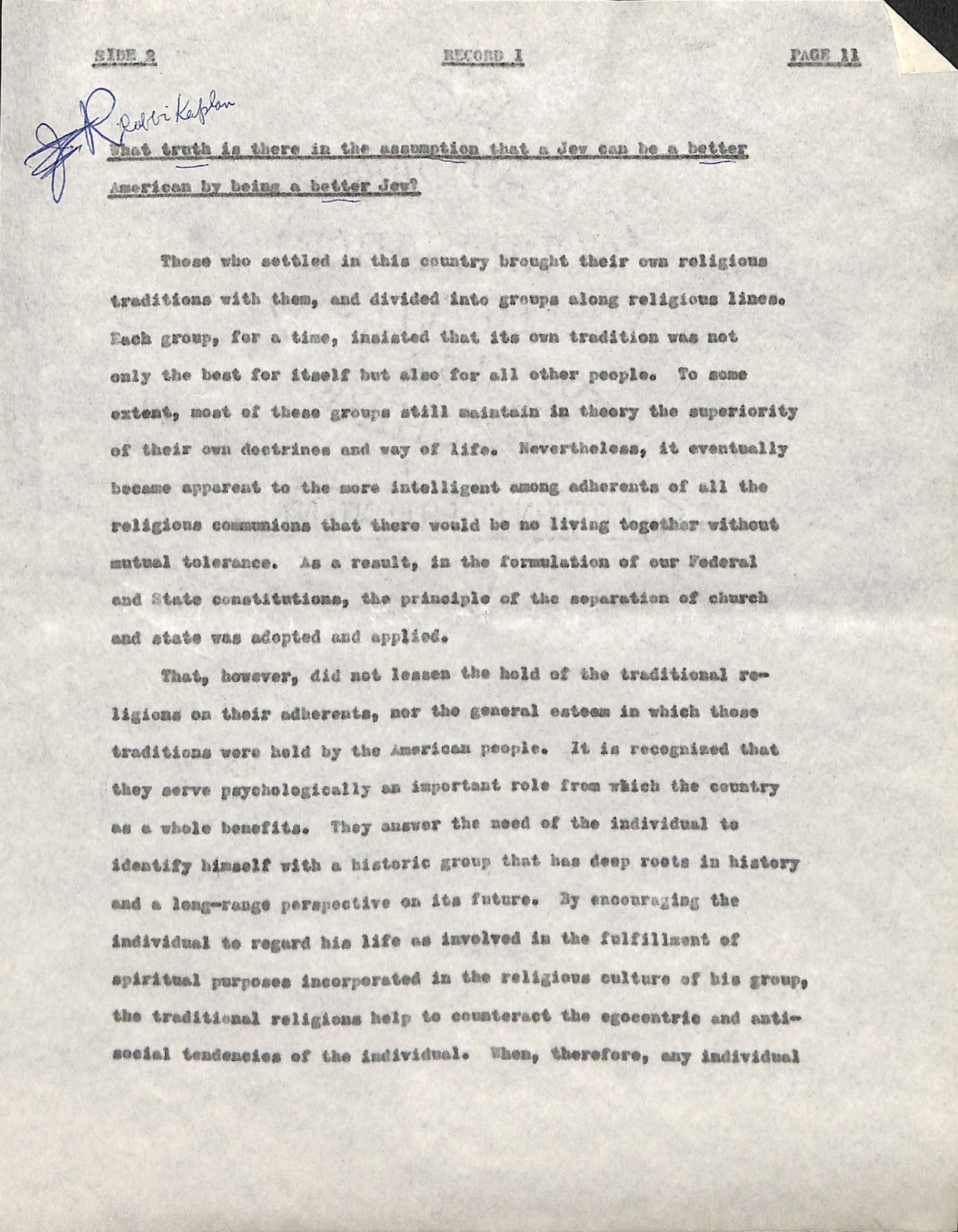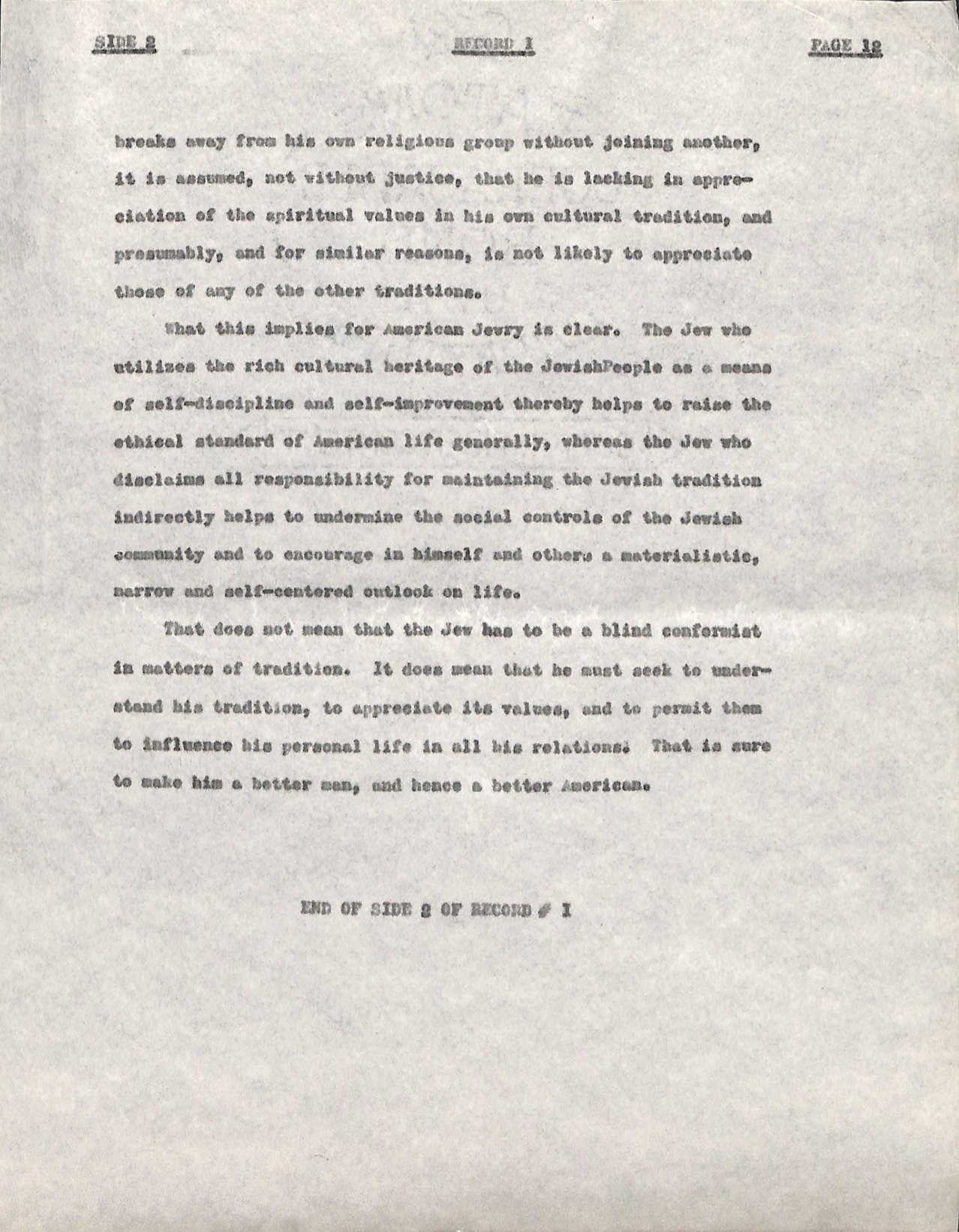Rabbi Kaplan speaks about the social responsibilities of Jews in the mid-twentieth century, and much of the content is applicable to our world today.
In life in general, and in Jewish life in particular, there is not a need of being improved. Our entire social order, with its politics, its economics, its religion, its ethics, its education, and its culture is for violence, for corruption and intrigue. As well as erroneous and mistaken ideals. To accept as our vocation setting right whatever is wrong is to live up to the divine behest that we be a kingdom of priests. But to constitute such a kingdom, we ourselves must become a holy nation. We must see to it that the universal defamation of the name "Jew," beginning with a new testament, to virtually the entire Gentile literature in every language in the world, be shown not to be ridiculous, as well as wicked and cruel. Our vocation is to clean house by reactivating the principle of mutual responsibility. We should never permit a Jew's wealth or power to blind us to his dishonesty. The name of such a Jew should not be found on the honor roll of our community, or the roster of honored guests, no matter how large a contribution he may make to much-needed funds. Let the Jew achieve the reputation for honesty that is associated with the name Quaker. Let his yea be yea, and his nay, nay. There are many other areas, my friends, in which Jews should practice their priestly vocation.
The way to apply that rule is indicated by the question, "If not now, when?" That means that we have to utilize immediately every actual occasion and opportunity to translate both our independence and interdependence into action. That is further spelled out by an additional statement in the Talmud. The statement reads, "A person should regard himself as though his deeds have been weighed in the balance, and as though half of them were in the scale of merit and the other half in the scale of demerit. The next deed, which he's about to perform, will determine his fate and that of the rest of the world." That is the end of the statement. That implies that each act we commit carries with it consequences for which we are responsible at the very moment we act. Religion as moral responsibility in action is needed to rid us of three fatal illusions. First is the illusion of collectivism. That illusion is due to the tendency to put the blame for the wrong we commit upon the kind of society to which we belong. We underestimate the extent to which each of us individually initiates action. We like to imagine that we are mere driftwood swept along by the irresistible tide of social forces; political, economic, and cultural. The actual trial and execution which took place in Israel was needed as a demonstration of the principle that individual irresponsibility is an illusion. His plea that he was a mere helpless cog in a vast machine was shown to be a lie. As long as a person is sane enough to distinguish between right and wrong, he is responsible for what he does, no matter how great the social pressure that is exerted upon him. The illusion of collectivism prevents us from realizing that each of us has a share in whatever preventable harm comes to others, however remote they may be from us.

